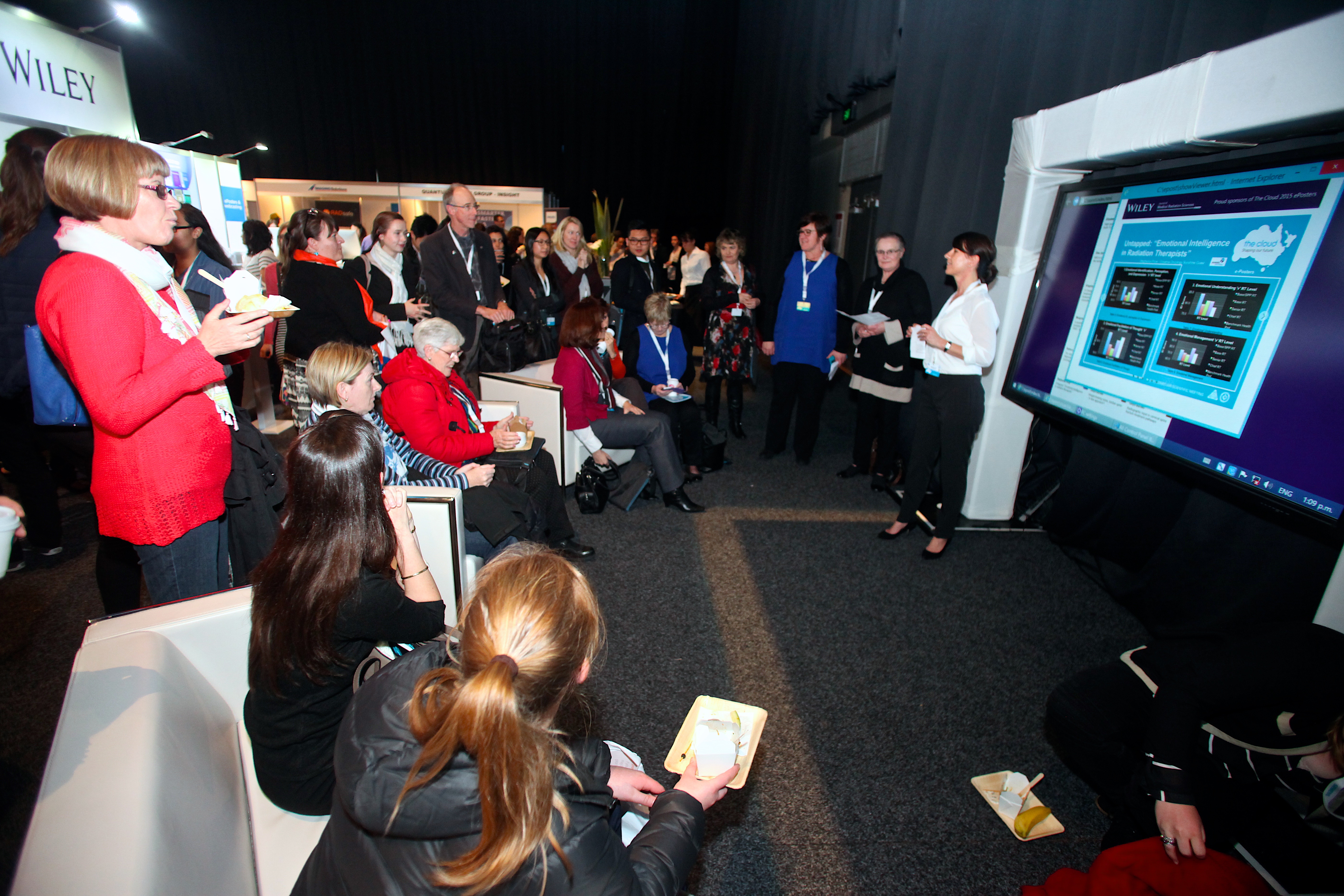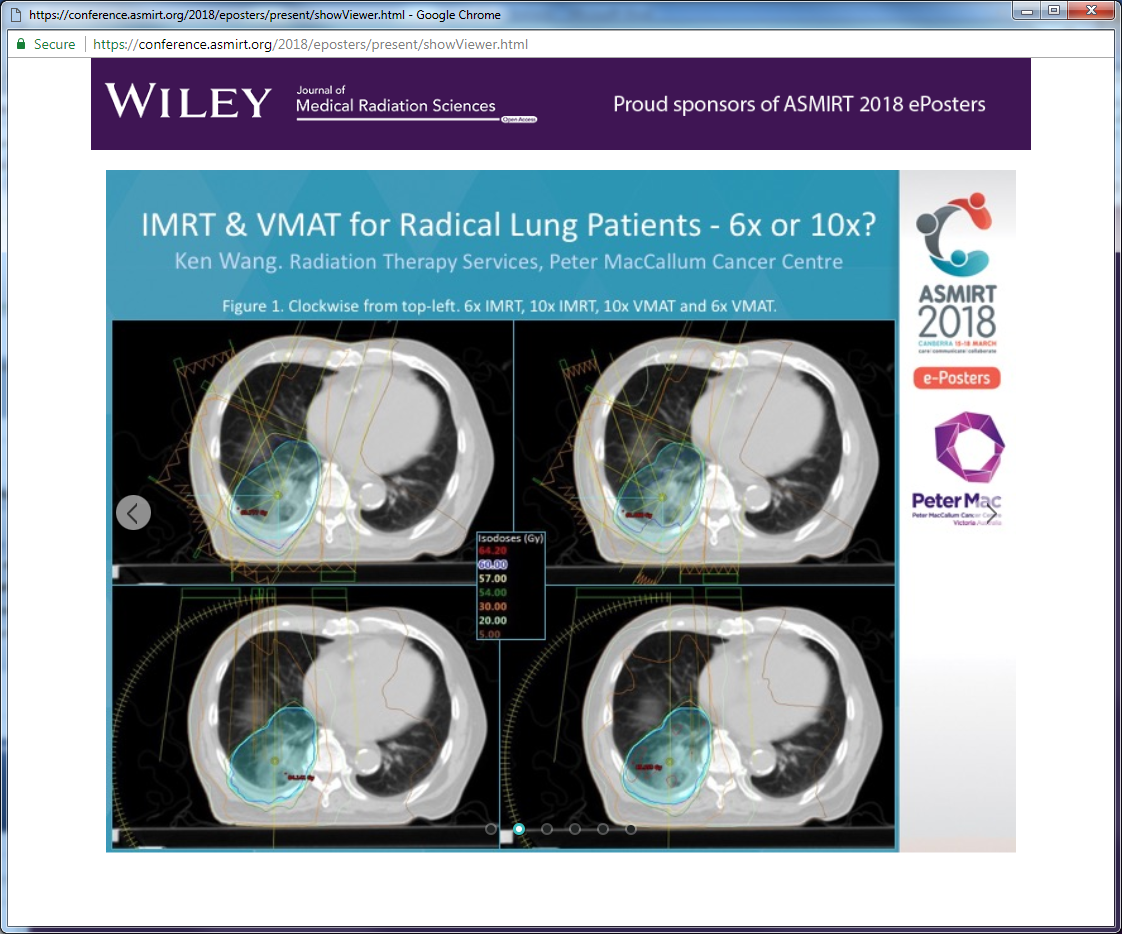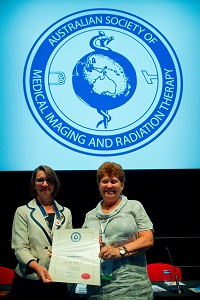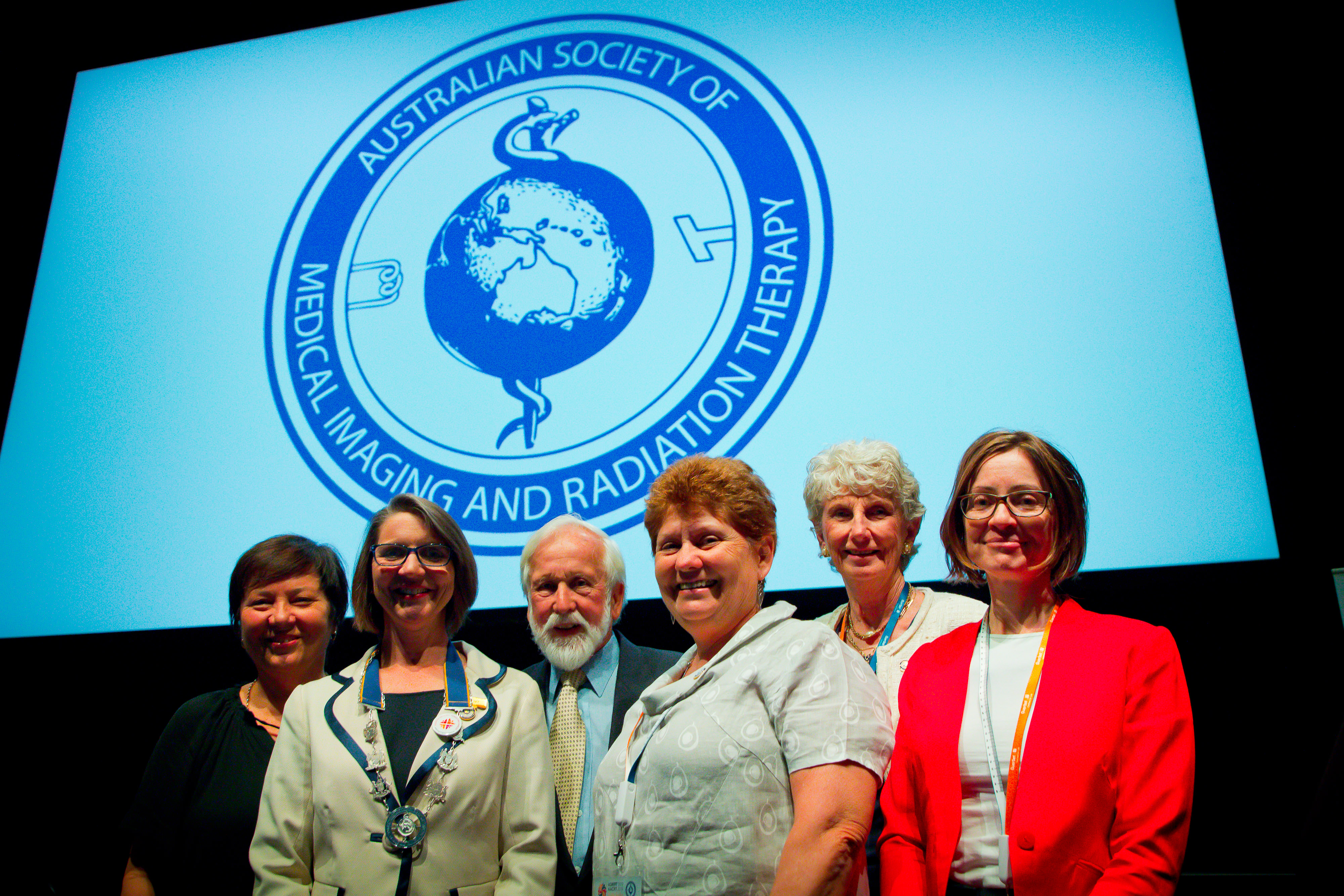
The theme of ASMIRT/ AACRT 2019 is Better Together - patients, professionals, possibilities. It is focused on bringing people together to share information on the latest technologies, of smart ways to use the resources we have for the best possible patient outcomes, and of course to socialise together and make long term friendships and networks – to better our profession, our patients and for our future possibilities.The combination of the ASMIRT 2019 Conference and the ISRRT’s 22nd Asia Australasia Conference of Radiological Technologists allows for additional international networking and collaboration.
General abstract submissions closed Tuesday 21 August 2018.
Are you a medical imaging or radiation therapy student in Australia, New Zealand or Asia?
Then we want YOU! Come to Adelaide on 29 March 2019 and be a part of our one-day Student Conference, organised by ASMIRT together with UniSA Medical Radiation Science Students. Come along to hear what experiences your peers are involved in, sit in on a panel session or meet with our vendors at the conference exhibition hall.
ASMIRT created this short video with tips on how to submit an abstract
Please read this information carefully before submitting an abstract. When submitting your abstract, you will be asked to indicate whether it is a scientific abstract (Original research) or non-scientific abstract (Other – eg Case study, Literature review, Clinical audit). Please access the abstract terms and conditions so you are clear about each of these types. By submitting an abstract you have agreed to these terms and conditions.
In response to member’s requests, we have updated the process used for selecting abstracts for paper and ePoster presentations at the conference. In order to assist authors wishing to present in 2019, there will be two scoring matrices used for reviewing the quality of abstracts submitted. The two matrices differ in that one is used to review scientific abstracts, and the other is used to review non-scientific abstracts.
Scientific abstracts:
This category of abstract would describe original research, and would also include systematic reviews, meta-analyses, and quality improvement projects. The abstract must be structured under the following headings: Objectives, Methods, Results, Discussion/Conclusion and References. Please access the scientific abstract scoring matrix to become familiar with what is expected and how your abstract will be reviewed for inclusion.
Non-scientific abstracts:
This category of abstract would describe a case, a situation, a problem or a practice using adequate reasoning and evidence to support a point of view. For commentary and narrative review, it is not necessary to provide headings since reporting the methodology for searching the literature is not required. Case studies must be structured under the following headings: Introduction, Case Presentation, Management and Outcome, and Discussion. Please access the non-scientific abstract scoring matrix to become familiar with what is expected and how your abstract will be reviewed for inclusion.
Presentation types

Authors will be required to indicate their preferred presentation format when submitting an abstract. They are required to select Oral, Fast 4 or ePoster.
Oral presentations will be 15 minutes (12 minutes + 3 minutes Q&A) Longer presentation formats are also available. Requests for a longer presentation should be sent to conferences@asmirt.org so these can be considered by the scientific program committee. Decisions will be dependent on relevance to the conference and session and time availability.
Fast 4 is a 4 minute oral presentation (4 minutes + no Q&A) with a maximum of 4 accompanying slides, presented at a Fast 4-specific session. Please note that no prizes/awards are associated with this presentation style.
ePosters will be presented electronically in 2019 and made available for viewing at the conference venue. If your abstract is accepted as an ePoster, you may be requested to be available for discussion during the corresponding moderated ePoster viewing session. View a winning ePoster from the 2018 conference here.
Not sure which conference (main or student) to submit your abstract to?
Student Conference - At the time of abstract submission, to submit to the Student Conference you must be a student currently enrolled in an undergraduate or Graduate Entry Masters (GEM) MRS program. This includes honours students. For international submissions you must be a student, not studying post graduate qualifications.
Main conference - At the time of abstract submission if you are currently undertaking an AHPRA Supervised Practice Program (SPP) or international equivalent you must submit your abstract to the main conference for consideration.
General
• You grant ASMIRT non-exclusive rights to publish, reproduce, distribute and store the abstract.
• Research, audit or quality improvement (QI) projects involving humans and animals must comply with international ethical standards such as the Declaration of Helsinki. Authors must also comply with research and QI ethics guidelines from their local human research ethics office.
• Patients reported in case studies must be de-identified. Authors must also comply with the hospital’s policy of obtaining permission from the patient or their carer.
• If the author(s) have any commercial interests or associations that might pose a conflict of interest regarding this submission, they must be declared at the end of your abstract submission.
• If accepted for presentation, the commercial interest or association must be declared on the title slide or the slide immediately following the title slide.
• Trade names cannot be mentioned in the title. However, trade names in brackets will be accepted in the body of the text.
• The author is responsible for the accuracy of the abstract.
• Authors may submit more than one paper.
• Abstracts should use the Vancouver style of referencing as used by JMRS.
Abstract Format
• Abstracts must be uploaded into the text box through the presentation portal in the abstract submission system. Please note there is a special characters keyboard available for your abstract and references.
• The total length of the abstract should be between 100-250 words
• Speaker bios should be entered and are limited to 100 words.
• One graph, table, figure or supporting image can be inserted to the abstract submission if it is essential for the overall understanding of the abstract.
• Abbreviations should be defined at first mention.
• References should be included if they support the abstract. These references are not included in the 250 word count and must be directly cited in the abstract using the JMRS Vancouver referencing style. The Reference field is mandatory. If you do not wish to quote any references you will still need to enter something in this field. NA is acceptable.
• Please ensure that your abstract does not contain spelling, grammatical or scientific errors. No corrections are possible after your abstract has been submitted for review, unless requested by the reviewer/s.
• The abstract will be reproduced as submitted, though ASMIRT reserve the right to make small alterations to grammar and compliance with publication styling.
• Once an abstract has been successfully submitted you will receive a confirmation email, including a pdf copy of the submitted abstract which has been formatted. To include co-authors in this advice please enter their email address in the Email Correspondence field during abstract submission.
After the Submission
The reviewers will judge the abstracts using some or all of the following criteria (please see the relevant marking matrix (scientific or non-scientific)):
• relevance to the conference theme/s
• standard of reporting and English language
• clarity and readability of the abstract
• title reflects the content of the abstract
• methodology is suitable for the objectives
• points of view are supported by reasoning and evidence
• conclusions confirmed by objective results
o complying with ethics standards
o scientific value
o potential clinical value
o originality and novelty of the work
Please refer to the abstract marking matrix for further detailed information regarding each of these criteria.
Using the email address provided during submission, the submitting author will be notified as to whether or not their abstract has been accepted If accepted, authors will also be informed as to whether their presentation will be an ePoster or an Oral presentation of 15 minutes, 4 minutes or longer. Specific dates and times of presentation will be provided ASAP, once the program is completed.
Submitting authors will be notified late-September of their acceptance to present at the conference.
If you need to withdraw your abstract, a written statement reflecting the reasons for this decision must be sent to conferences@asmirt.org
Review and Selection
Abstracts will be blind reviewed by a panel of experts selected by the Scientific Program Committee.
Selection will be based on the abstract review scoring criteria from the relevant scoring matrix. The decisions of the review process are final and cannot be disputed.
Speaker Registration
A condition of abstract acceptance is that at least one of the presenting authors must register to attend as a full delegate and pay the appropriate registration fee by Thursday 15 November 2018. This is to allow for time for the publication of JMRS and for presenters to obtain visa entry into Australia. Should one of the presenting authors not register by this time, the presentation may be removed from the program. A co-presenter is permitted on the basis that they have registered for the day of their presentation. Where there is more than one presenter, it is important that the presentation time is strictly adhered to, so enough time is available for questions.
Publication Policy
All abstracts accepted for presentation (oral or ePoster) will be published in the official abstract book of the conference. It is envisaged that this will be through a JMRS (Journal of Medical Radiation Sciences) abstract supplement, and will be available through the Conference App. As this is published in JMRS you need to ensure that local and international ethical standards are complied with.
Recording of Presentations
It is envisioned that presentations will be recorded at the conference for distribution at the conference and through the Conference App and through the ASMIRT website after the conference.
Conference App
By submitting an abstract presenters give permission for their name, bio and image (if uploaded) to be available through the Conference App, and in delegate lists.
Plagiarism
ASMIRT regards plagiarism as serious professional misconduct. If plagiarism is identified, the abstract and any other abstracts submitted by the same author will be rejected.

ASMIRT/AACRT 2019 will feature ePoster displays which will be available at terminals in the exhibition hall and through the website and conference app. There will also be short presentation Q&A sessions in the ePoster area of the exhibition hall.

INFORMATION FOR AUTHORS
The deadline to upload your final Poster is Tuesday 22 January 2019.
Please download the ASMIRT/AACRT 2019 ePoster template and read / comply with the ePoster guidelines before uploading your ePoster.
At ASMIRT/AACRT 2019 all ePosters will be available on the website and App in the conference lead up (and after), as well as at the computer terminals at the event so that delegates can view your ePosters before, during and after the conference.
ePoster authors will also have the opportunity to have a scheduled short presentation with question and answer time. You can elect to take part in a Q&A session when uploading your ePoster.
View a winning ePoster from the 2018 conference here.

The following prizes were awarded at ASMIRT/AACRT 2019 - congratulations to all our winners.
Pioneers - Joycelyn Cottrell and Nick Woznitza
Varian Award – Rachel Kearvell
Advanced Practitioner Award - Teagan Wilde
Life Members – Fiona Jeffs (in absentia) and Jennie Baxter
Nicholas Outterside Award - Graham Tidswell
Ian Roos Award - Julie McCrossin

Harold Anderson Memorial Diagnositc Student Prize (Paper) – Jacky Chen The effect of visual hindsight bias on radiologist perception
Harold Anderson Memorial Radiation Therapy Student Prize (Paper) – Daniel Hughes Literature review on efficacy and toxicity of hypo-fractionated radiotherapy to the prostate compared with conventional fractionation
Diagnostic Prize (ePoster) – Shayne Chau Establishment of facility reference level in computed tomography in selective examinations in a single institution in South Australia
Radiation Therapy (ePoster) – Linda Bell Post-prostatectomy intra-faction motion management: how much do our patients move during treatment and how to decrease the risk of geographic miss
Diagnostic Prize (paper) – Caitlin Steffensen Development of a tailored critical appraisal tool for studies of image quality
Radiation Therapy (paper) – Nigel Anderson Feasibility of a virtual reality intervention for the reduction of parent/patient distress and anaesthesia requirement during paediatric radiotherapy
Please note prizes are only awarded to those who are current financial members of ASMIRT and who fit the category of the prize. These prizes are adjudicated throughout the conference (with no input from the prize sponsors), and the announcements are final with no further discussion entered into.
Download the Adjudication Matrix here
Diagnostic Prize (paper)
Awarded to the radiographer / medical imaging member who presents the best paper at the annual conference.
Diagnostic Prize (ePoster)
Awarded to the radiographer / medical imaging member who submits the best ePoster at the annual conference.
Harold Anderson Memorial Diagnostic Student Prize (Paper)
Awarded to the student diagnostic radiographer / medical imaging member who presents the most applicable or most beneficial paper at the annual conference. The student must be a branch student prize winner, who presents in the student prize winner section of the main conference.
Radiation Therapy Prize (paper)
Awarded to the radiation therapist member who presents the best paper at the annual conference.
Radiation Therapy Prize (ePoster)
Awarded to the radiation therapist member who submits the best ePoster at the annual conference.
Harold Anderson Memorial Radiation Therapy Student Prize (Paper)
Awarded to the student radiation therapist member who presents the most applicable or most beneficial paper at the annual conference. The student must be a branch student prize winner, who presents in the student prize winner section of the main conference.
ASMIRT Student Conference – Diagnostic Prize (paper)
Awarded to the student diagnostic radiographer/medical imaging member who presents the best paper at the annual student conference.
ASMIRT Student Conference – Diagnostic Prize (ePoster)
Awarded to the student diagnostic radiographer/medical imaging member who presents the best eposter at the annual student conference.
ASMIRT Student Conference – Radiation Therapy Prize (paper)
Awarded to the student radiation therapist member who presents the best paper at the annual student conference.
ASMIRT Student Conference - Raditation Therapy Prize (ePoster)
Awarded to the student radiation therapist member who presents the best eposter at the annual student conference.
Awards
ASMIRT Awards include Life Membership, Fellowship and Nicholas Outterside awards.
Fellowship of ASMIRT
Awarded to members of the Australian Society of Medical Imaging and Radiation Therapy who have fulfilled the requirements of the Board. Fellowship represents the highest category of membership.
Nicholas Outterside Medallion
Awarded to members of the Australian Society of Medical Imaging and Radiation Therapy who have significantly contributed to the Society over many years.
Life Membership of ASMIRT
Life Membership is awarded to those retired members in recognition of the significant contribution that they have made to the Australian Society of Medical Imaging and Radiation Therapy at a state and national level during their professional working life.
Varian Award
Awarded to a radiation therapist who has made a significant contribution to the field of radiation therapy.
Advanced Practice of ASMIRT
Awarded to members of the Australian Society of Medical Imaging and Radiation Therapy who have met the criteria of Advanced practice as defined by the ASMIRT Board of Directors.
The above awards may be awarded at the conference, though is subject to a nomination and approval process. For more information on how these awards are nominated and awarded please contact conferences@asmirt.org